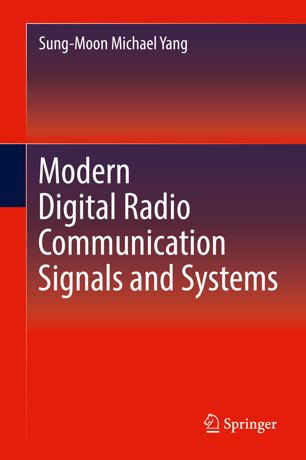

Most ebook files are in PDF format, so you can easily read them using various software such as Foxit Reader or directly on the Google Chrome browser.
Some ebook files are released by publishers in other formats such as .awz, .mobi, .epub, .fb2, etc. You may need to install specific software to read these formats on mobile/PC, such as Calibre.
Please read the tutorial at this link: https://ebookbell.com/faq
We offer FREE conversion to the popular formats you request; however, this may take some time. Therefore, right after payment, please email us, and we will try to provide the service as quickly as possible.
For some exceptional file formats or broken links (if any), please refrain from opening any disputes. Instead, email us first, and we will try to assist within a maximum of 6 hours.
EbookBell Team

4.3
8 reviewsThis book serves as an easily accessible reference for wireless digital communication systems. Topics are presented with simple but non-trivial examples and then elaborated with their variations and sophistications. It includes numerous examples and exercises to illustrate key points. The book emphasizes both practical problem solving and a thorough understanding of fundamentals, aiming to realize the complementary relationship between practice and theory. Though the author emphasize wireless radio channels, the fundamentals that are covered are useful to different channels - digital subscriber line, coax, power lines, optical fibers, and even Gigabit serial interconnection.
This book is the outgrowth of the author’s hands-on experience in the telecommunication systems industry as a research and development engineer. It is written primarily for practitioners of wireless digital communication systems – engineers and technical leaders and managers – and for digital communication systems in general including new comers like graduate students and upper-division undergraduate students.
The material in chapters 5(OFDM), 6(Channel coding), 7(Synchronization) and 8(Transceivers) contains something new, not explicitly available in typical textbooks, and useful in practice. For example, in Chapter 5, all known orthogonal frequency division multiplex signals are formulated based on pulse shape and thus flexible, e.g., unlike currently predominant symbol block transmission, it can be serial transmission. In Chapter 6, we emphasize practical applications of powerful error coding such as LDPC to higher order modulations, fading, and non-linearity problem. In Chapter 7, new digital timing detectors are suggested for small access bandwidth shaping pulse, and a digital quadrature imbalance correction is also included along with digital carrier phase recovery. In Chapter 8, low IF digital image cancelling transceiver is treated in detail so that practical implementation can be readily done with advantages.